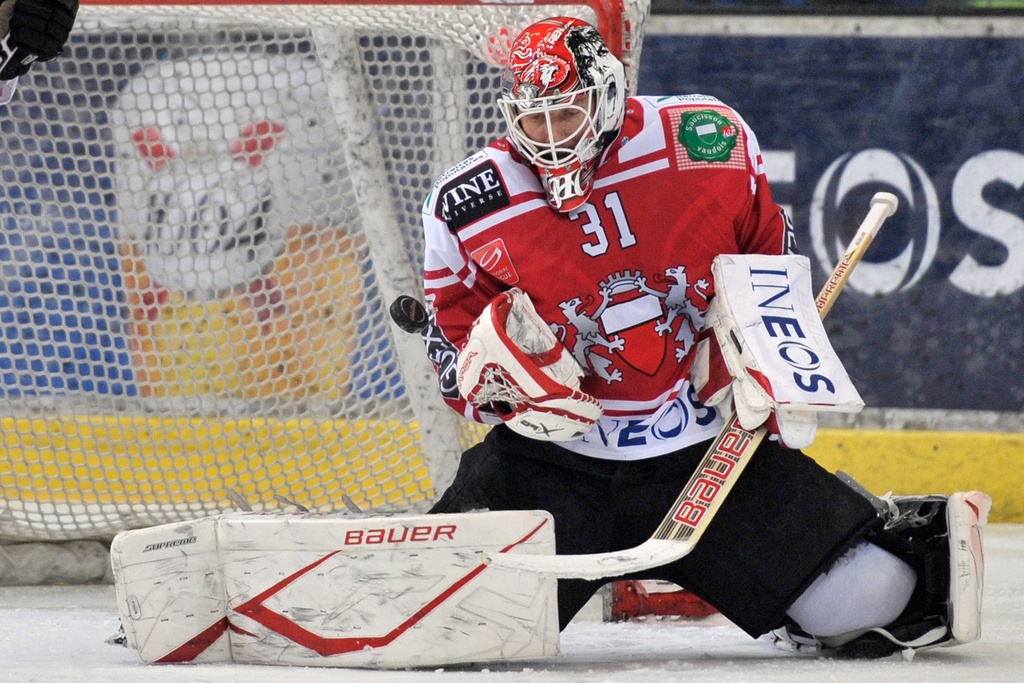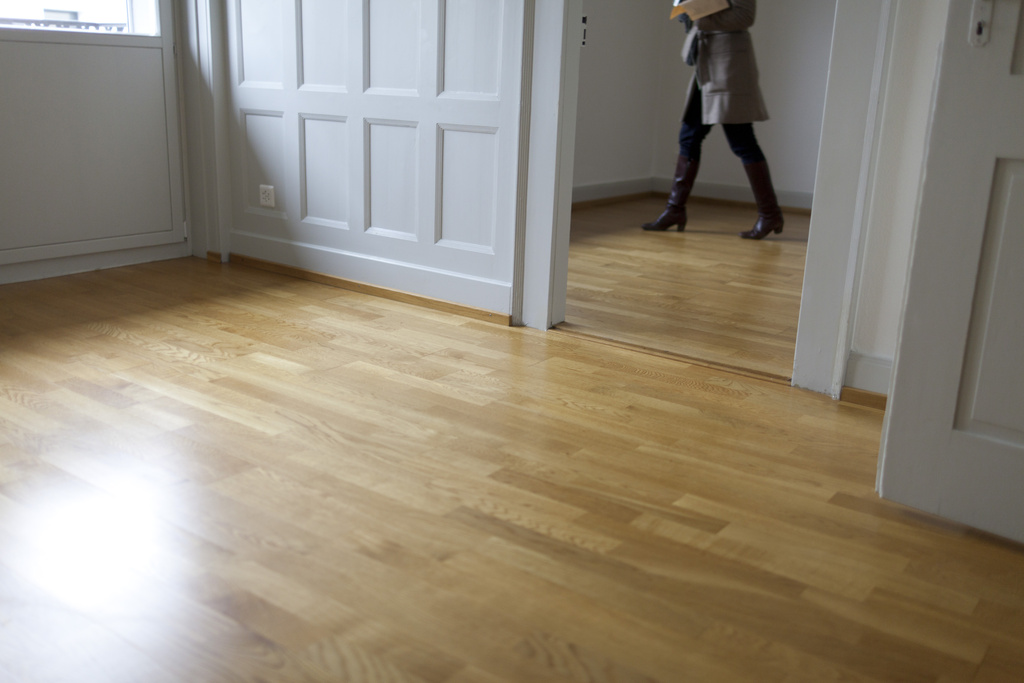Swiss HQ oversees Ineos future growth

Hidden away in the leafy village of Rolle, little would you know that the quiet white office is the hub of petrochemical giant Ineos’s global expansion plans.
The private group recently moved its headquarters and tax residence from Southampton, Britain, to the village on the shores of Lake Geneva to benefit from its central European location and to save on tax bills. swissinfo.ch went to find out more.
“Clearly we’ve grown very quickly and having developed a global business we needed a global centre,” Ineos Chief Executive Officer Tom Crotty told swissinfo.ch. “Switzerland was a good choice because of its centrality.”
And canton Vaud ticked all the boxes, whether it was transport links, office infrastructure, French being an easier foreign language for British managers than Swiss German, nearby ski slopes, or lower taxes, he admitted.
With a $40 billion (SFr35.9 billion) turnover in 2010, Ineos is now the fourth largest petrochemicals group in the world. It likes to describe itself as possibly “the biggest firm you’ve never heard of”, supplying businesses with the raw building-block chemicals that are then used in products such as medicines, biofuels or plastics.
Founded in 1998, the firm has grown rapidly via a series of “unfashionable” chemical acquisitions from groups like BP, ICI and Dow but suffered from a dramatic global slump in demand in 2008-2009 due to the recession.
The acquisition spree reportedly saddled the firm with high debt which it had to renegotiate with the banks and it is only just emerging from this period.
The decision to move headquarters to Rolle was taken as part of efforts to improve cash generation and to get through the recession. The management remains unapologetic about quitting Britain for Switzerland for tax reasons.
“When you are in a downturn you are looking at every penny you spend and tax is a huge chunk of money,” said Crotty.
The firm aims to save up to €450 million over the next four years and “a couple of hundred million a year” thereafter.
But Crotty says they remain committed to Britain despite the move: “we are a major player and still employ 4,000 people and pay the thick end of £500 million in taxes in Britain when it’s all added up.”
Lean global HQ
The lean head office structure in Rolle is home to the new holding company and the vast majority of the firm’s 15 business unit directors. But by next year this will probably only amount to 60 senior executives, with 20-30 “flitting in and out”, for a global staff of 15,000.
“While some companies have departments, we have single people; our legal department is one man,” said Crotty, adding that their decentralised structure was their strength.
Ineos manages refineries in Grangemouth, Scotland, and Lavéra, France, for example.
The new Swiss hub is overseeing their new strategy to diversify away from the firm’s European and North American roots into territories such as China and the Middle East as well as to look for technological opportunities in areas like biofuels.
In January Ineos signed a joint venture with PetroChina, allowing China’s largest oil and gas producer to buy into half of its European refinery business. Under the deal Ineos will become PetroChina’s preferred technical partner as they develop their Chinese petrochemical business.
The same month it signed a deal with Chinese oil refining giant Sinopec to build a $500-million phenol/acetone plant in Nanjing to produce the basic raw chemicals that make polycarbonate, a high-growth plastic.
Waste and bugs
The second prong of their strategy will see the firm invest in bioethanol fuel technologies.
The firm has patented a method of producing fuel from municipal solid waste, agricultural waste and organic commercial waste. The process works by heating the waste at high temperatures to produce carbon monoxide, then feeding the gas to bacteria which produce ethanol that can be purified into a fuel. The technique also releases excess heat that creates steam that can be converted into electricity.
After a successful five-year pilot project in Arkansas, United States, Ineos plans to build a biofuels plant in Florida that uses orange peel waste from the fruit juice industry, which should commence operation in 2012. It also has planning permission for the first European unit in Britain that uses domestic waste.
The hope is to build small-scale units outside towns that can locally supply electricity and fuel “keeping the carbon footprint as low as possible,” said Crotty.
To help drive future development in this area, the firm has already approached Lausanne’s Federal Institute of Technology (EPFL) with a view to tapping into local research expertise as well as seducing scientists and engineers who might be interested in a career in the petrochemical business.
Low corporate tax rates, a high quality of life, a highly skilled workforce, excellent infrastructure, a central location and a well established financial centre are among the reasons that Switzerland is a magnet for foreign firms.
Many foreign companies have set up headquarters or other operations in Switzerland in recent years, including Google, Philip Morris, Caterpillar, Chiquita, Ebay and Dow Chemicals.
The numbers have been recently boosted by the arrival of reinsurance companies escaping a US tax crackdown on the Caribbean islands and commodities firms.
Raw materials traders such as Transocean, Rosneft and Bashneft have either moved operations in the past few months or are said to be considering such a move.
According to Ernst & Young, Neuchâtel has the highest effective combined cantonal and federal corporate tax rate of 24.5%. Voters were due to have decided on slashing those rates in half on April 3, but the process has been delayed by a court order.
The lowest effective tax rate is in Appenzell Inner Rhodes (14%), while many cantons are thought to be considering moves to lower their rates further.
Cantons also award tax breaks on the foreign derived earnings of many firms – a strategy that the EU claims is anti-competitive.
An ongoing row between Switzerland and the EU remains unresolved, although Switzerland has said it may cede some ground on the issue.
Established in 1998 by Jim Ratcliffe, Ineos has grown through a series of acquisitions to become one of the largest manufacturers of petrochemicals, specialty chemicals and oil products in the world.
It produces more than 60 million tonnes of petrochemicals, including 20 million tonnes a year of crude oil refined products and in 2010 had a turnover of $40 billion.
The firm, which recently moved its headquarters to Rolle, canton Vaud, operates 51 production facilities in 13 countries, employing around 15,500 people.

In compliance with the JTI standards
More: SWI swissinfo.ch certified by the Journalism Trust Initiative













You can find an overview of ongoing debates with our journalists here . Please join us!
If you want to start a conversation about a topic raised in this article or want to report factual errors, email us at english@swissinfo.ch.